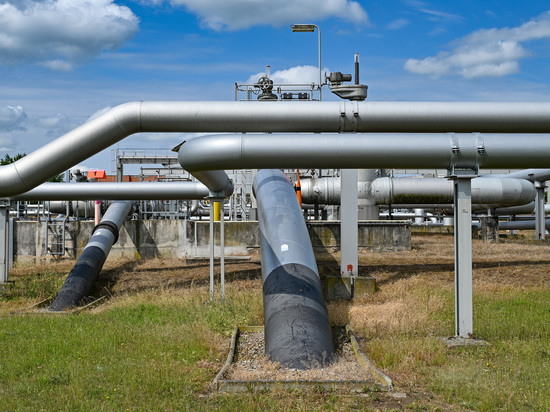“Supplies to Europe may be interrupted”
Over the transit of Russian oil to Europe through the Ukrainian section of the Druzhba pipeline; there was a clear threat of a halt. Kyiv intends to increase the tariff for pumping one and a half times over the next three months. According to experts, this will create problems, especially for Hungary, which will have to pay for virtually all transportation. Such a turn is also disadvantageous for Moscow, so the situation is rather serious.

According to Argus agency, we are talking about a two-stage increase in transportation prices: from June 1, the rate will increase by 25%, to €17 per ton, and from August 1 by another 23.5%, to €21 per ton. The decision comes from Ukrainian pipeline operator Ukrtransnafta. This year the tariff has already increased by 18.3% to €13.6 per ton. And in 2022, it increased twice: from the beginning of the year to €9 per ton, and then from April 1 — by 27.8%, to €11.5. At the moment, Ukraine is negotiating directly with Hungary, the Czech Republic and Slovakia, which receive raw materials through the southern branch of Druzhba. At the end of last year, the total volume of Russian deliveries to Eastern Europe amounted to 38.4 million tons: they went mainly to Poland, Hungary, the Czech Republic and Slovakia.
For Kyiv, the constant increase in transit tariffs is a lever of pressure on Budapest, with which he has a conflict. In particular, on the issues of the rights of ethnic Hungarians on the territory of Ukraine and the restrained position of Hungary regarding EU anti-Russian sanctions. This is the opinion of Igor Yushkov, an expert at the Financial University under the Government of the Russian Federation. According to the interlocutor of «MK», economically Ukraine does not justify its step, which has a completely different — not financial — background. All the costs of transporting raw materials at the new tariff, including pumping to Serbia, will have to be borne by the largest Hungarian oil and gas company MOL (it owns refineries in the Czech Republic and Slovakia). Moreover, Budapest is well aware that this is not the last rate increase. And it is possible that in the end they will look for other sources of oil imports.
“For Ukraine, stopping transit is also unprofitable for financial reasons,” Yushkov argues. — In addition, this may lead to a reduction in processing and free volumes of oil products in Eastern Europe, which Kyiv imports from these countries. As for Russia, on the one hand, it has somewhere to transfer oil going to Europe: there will be transport capacities and sales markets. The question is profitability. Firstly, we are completely satisfied with the Druzhba leveling because of the low cost, and secondly, Hungary, the Czech Republic and Slovakia are convenient clients with well-established logistics. The situation is fraught with the fact that Russia will stop supplying oil to Europe.”
The consequences of raising the tariff for pumping Russian oil to Europe through Ukraine will depend on the final configuration of the agreements, Alexey Fedorov, an analyst at TeleTrade, said. In his opinion, the current supply route remains the most profitable for Hungary, even taking into account higher prices. Transportation by rail or transit through the Adriatic oil pipeline (through Croatia) will cost Budapest much more. It is difficult to say whether he (as well as the Czech Republic and Slovakia) will accept the new conditions, or whether the bargaining with Kiev will continue. European buyers will certainly want contractual guarantees on the timing of the new transit tariffs.
As for Moscow, it is unlikely that it will want to deprive itself of export earnings, especially in the face of a difficult situation with the federal budget, by limiting transit through the territory of Ukraine. Therefore, it is unlikely that supplies through the Druzhba pipeline will be stopped at the initiative of the Russian side.
“Judging by the latest actions of the Ukrainian leadership, they are based on economic, rather than political motives related to the confrontation with Hungary, — Fedorov believes. — Kiev showed this in its readiness to bargain: in the original application, the transit price doubled immediately from April, and in the current application — only by 50%, with a breakdown of the increase for June and August.
According to Head of the Analytical Department of AMarkets Artem Deev, Ukraine's decisions regarding tariffs for pumping Russian oil to Europe — last year and current ones — give away the despair of its Ministry of Finance, which clearly wants to hastily patch up the budget that is bursting at the seams. These attempts to accumulate at least some reserves of funds so that there is something to heat their own citizens in the coming winter have dubious chances of success, the MK interlocutor is sure.


